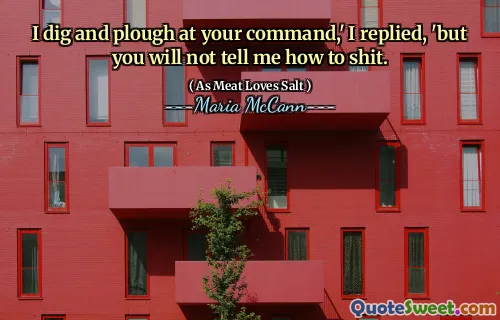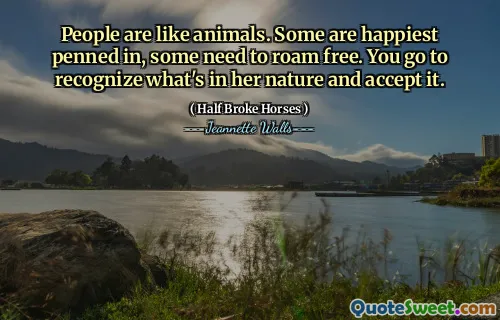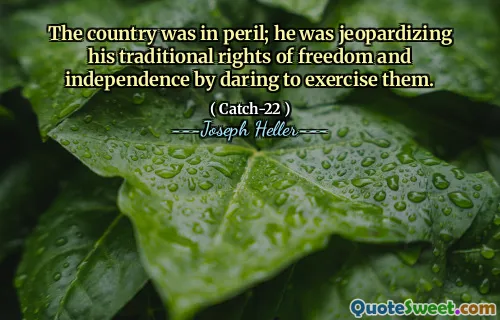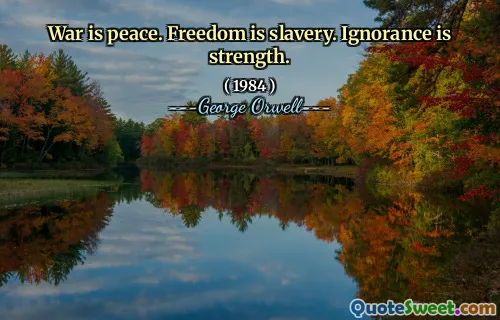
I dig and plough at your command,' I replied, 'but you will not tell me how to shit.
This striking quote from Maria McCann's As Meat Loves Salt encapsulates a profound dynamic between authority and autonomy. The speaker acknowledges their laborious obedience—"I dig and plough at your command"—highlighting a willingness to perform the tasks demanded by another, presumably a figure of power or dominance. Yet, the defiance surfaces in the blunt admission of personal agency: "but you will not tell me how to shit." This metaphor vividly portrays the limits of control; there are aspects of human existence and individuality that no external power can dictate or govern.
The quote artfully illustrates the tension in the relationship between submission and independence. It underscores how authority can compel certain actions, but cannot erase intrinsic personal boundaries or the innate freedom of the self. The juxtaposition of the dutiful labor with a crude yet powerful assertion of self-rule forces the reader to confront the often invisible lines separating obedience from self-possession. Moreover, the raw language pierces the genteel veneer often used to discuss sovereignty, evoking a visceral response that stresses the basic human right to govern one’s own body and choices.
In a broader social or historical context, this statement could be seen as a critique of systemic power structures that seek to dominate every aspect of a person’s life. It serves as a testament to resilience and resistance, reminding us that while many conditions may be imposed upon us, some fundamental aspects remain solely within our command. The candidness and earthy tone of the quote make it unforgettable, urging readers to reflect on the necessity and limits of control both politically and personally.






